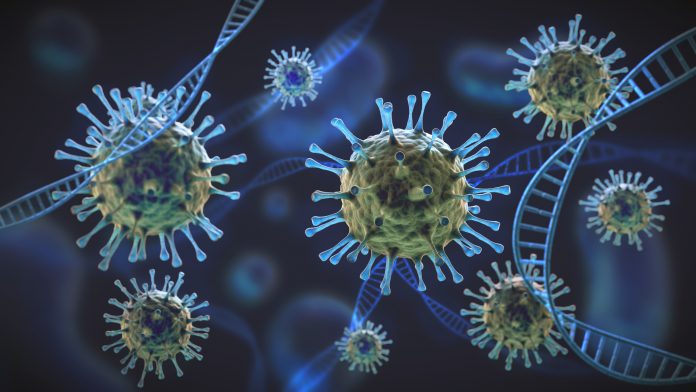
Big data and artificial intelligence have been used to identify already approved or candidate drugs that could be used to treat new COVID-19 variants, according to work from a team at Michigan State University.
Their research was published in the journal iScience.
Finding new ways to treat the novel coronavirus and its ever-changing variants is a serious challenge since the traditional drug development and discovery process can take many years and COVID-19 is particularly difficult to harness.
As the Michigan State University (MSU) researchers write, “The molecular manifestations of host cells responding to SARS-CoV-2 and its evolving variants of infection are vastly different across the studied models and conditions, imposing challenges for host-based antiviral drug discovery.”
This team are using AI to determine whether drugs already on the market or in development can pull double duty in treating new COVID variants.
“The COVID-19 virus is a challenge because it continues to evolve,” said Bin Chen, an associate professor in MSU’s College of Human Medicine. “By using artificial intelligence and really large data sets, we can repurpose old drugs for new uses.”
Chen built an international team of researchers with expertise on topics ranging from biology to computer science to address this question. First, the team turned to publicly available databases to mine for the unique coronavirus gene expression signatures from 1,700 host transcriptomic profiles that came from patient tissues, cell cultures, and mouse models. These signatures revealed the biology shared by COVID-19 and its variants.
With the virus’s signature and knowing which genes need to be suppressed and which genes need to be activated, the team was able to use a computer program to screen a drug library consisting of FDA-approved or investigational drugs to find candidates that could correct the expression of signature genes and further inhibit the coronavirus from replicating.
The team discovered one novel candidate, IMD-0354, a drug that passed phase I clinical trials for the treatment of atopic dermatitis. A group in Korea later observed that it was 90-fold more effective against six COVID-19 variants than remdesivir, the first drug approved to treat COVID-19.
Further, the group found that IMD-0354 inhibited the virus from copying itself by boosting the immune response pathways in the host cells. Based on the information learned, the researchers studied a prodrug of IMD-0354 called IMD-1041. A prodrug is an inactive substance that is metabolized within the body to create an active drug.
“IMD-1041 is even more promising as it is orally available and has been investigated for chronic obstructive pulmonary disease, a group of lung diseases that block airflow and make it difficult to breathe,” Chen said. “Because the structure of IMD-1041 is undisclosed, we are developing a new artificial intelligence platform to design novel compounds that hopefully could be tested and evaluated in more advanced animal models.”
In their paper, the authors write, “This study demonstrates that the conserved coronavirus signatures and the transcriptomic reversal approach that leverages polypharmacological effects could guide new variant therapeutic discovery.”













